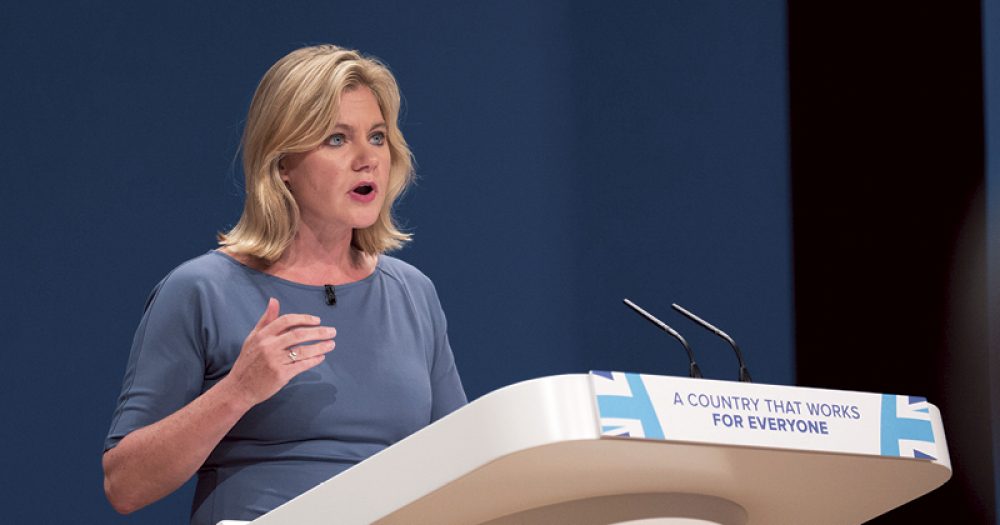Schools will not have to identify which pupils come from “ordinary working families”, Justine Greening has confirmed.
The education secretary was speaking at St Mary’s University today to outline her vision for education under Theresa May’s “plan for Britain”.
Her speech followed the launch of a consultation yesterday by the government, which proposes an official label for some pupils as coming from “ordinary working families”.
The group will include children who come from families earning below the median income level but who do not qualify for free school meals. Data from the Department for Education shows around one in three children fall into this category.
After her speech Schools Week asked the education secretary if schools will be expected to know which of their pupils class as “ordinary”, but Greening confirmed they will not.
“The technical consultation has been created by our statisticians at the DfE who have pulled this data together but no it doesn’t require schools to do anything,” she said.
“It is about data matching so that we can get a clear sense of pupils from our own data and then we can transfer back and work with HMRC or the Department for Work and Pensions to align their outcomes with parental income.”
Greening said the consultation will give her department “real insight” into a group of children that are “often not looked at as closely in terms of their education outcomes as we do more naturally and generally for disadvantaged children”.
She added: “What we are saying is that for those children who are not on free school meals, [and] aren’t on pupil premium, but are in families that have less than the median income, we want a clearer sense of looking at how they are faring in our schools system.”
Schools Week also asked the education secretary if it was her department or Downing Street that come up with the phrase “ordinary working families”, but Greening said neither did, as it is already a well-known term.
“In terms of the phrasing I don’t think that we have come up with that, it is something that we have been using for some time,” Greening said.
“Actually in the consultation we have said that we talk about ordinary working families to get a sense of how we will look at the analysis around that group.”
In today’s speech Greening reiterated that the new breed of grammar schools she intends to open will be for all young people and not just “the privileged few”.
Data in the government’s new consultation finds that children in grammars schools “are as likely to be from ordinary working families as children in non-selective schools, demonstrating that grammar schools are not just for the wealthy”.
But research group Education Datalab have pointed out that the DfE data shows children from ordinary working families only make up around a third of pupils at grammar schools. Over half are from families on high-incomes.
Speaking today, Greening said: “The new schools that we will create will support young people from every background.
“Young people on free school meals – and those eligible for pupil premium. Young people from ordinary working families that are struggling to get by. I want these new schools to work for everyone.
“This will be a new model of grammars, truly open to all – we will insist on that. And it will reflect the choices of local parents and communities.”







The fog of meaning is created by the phrase “grammar schools” rather than the more accurate “selective schools”. Once that phrase is used, the issues become clear – which children will be selected, by whom, how and why? And what happens to those who are not selected?
That’s all you need to see that the whole thing is about some parents not wanting their precious darlings to mingle with the hoi polloi. It’s actually about social segregation, so maybe we should refer to “segregated schools”, even.
Oh, and when will Greening be sharing with us the results of the consultation on segregated schools that ended in December? Surely she’s not about to disregard the voice of the people?